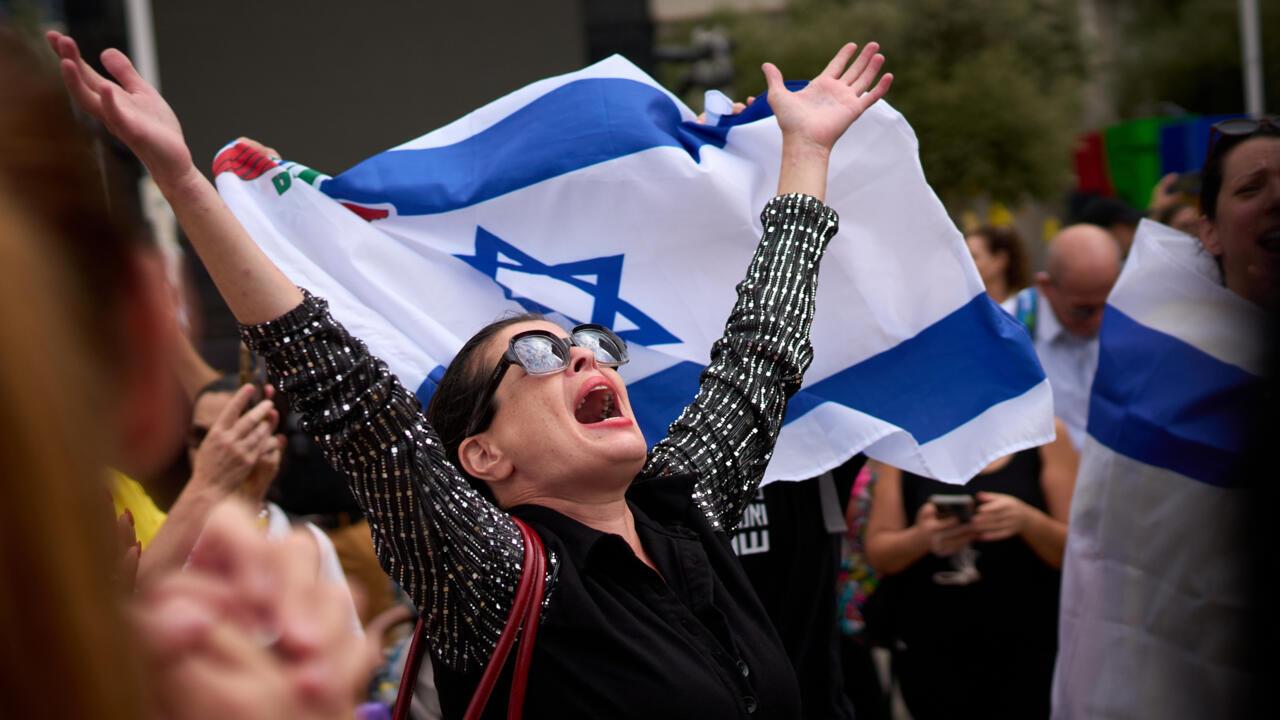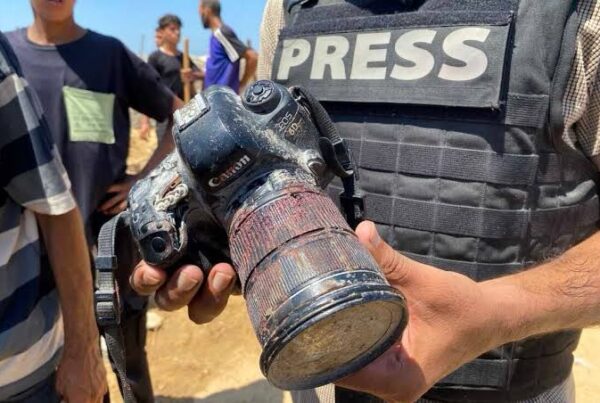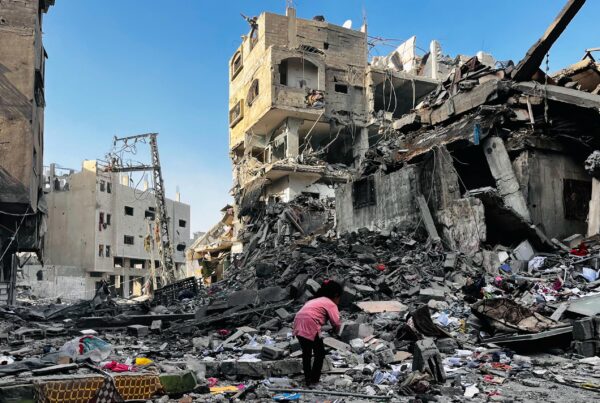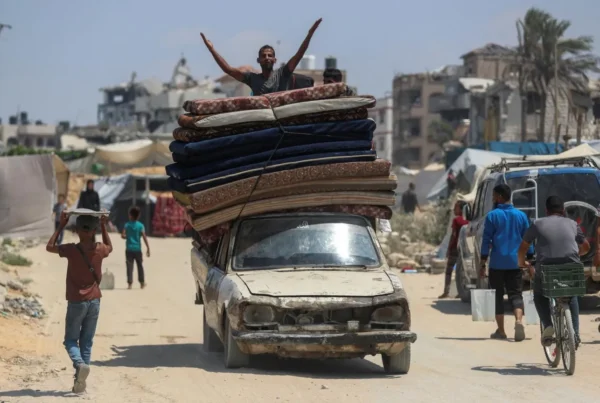Israel ceasefire agreement has been approved by the Israeli government, marking a crucial step toward halting months of intense conflict in Gaza. The deal includes a large-scale prisoner exchange and a phased military withdrawal.
According to government officials, the agreement outlines the release of around 2,000 Palestinian detainees, including 250 serving life sentences, in exchange for 48 Israeli hostages both living and deceased within 72 hours of the truce taking effect. The Israeli military will also reposition its troops to pre-agreed zones as part of the first phase of withdrawal.
This deal, brokered with assistance from Egypt, Qatar, and the United States, aims to create space for humanitarian relief and potentially a longer-term peace negotiation.
Terms of the Ceasefire Agreement
The ceasefire agreement represents one of the most significant diplomatic breakthroughs since the renewed escalation of violence in Gaza earlier this year. The truce is expected to last for an initial period of 10 days, with potential extensions depending on compliance by both sides.
Under the terms, Hamas will release all hostages taken since the conflict began, including Israeli civilians and foreign nationals, while Israel will release prisoners held under various security charges. International mediators will oversee both exchanges to ensure transparency and prevent violations.
Israel’s Commitments Under the Deal
As part of the Israel ceasefire, Israel agreed to a complete halt of aerial operations and heavy artillery strikes across Gaza. The Israeli Defense Forces (IDF) will also permit humanitarian aid convoys to enter Gaza through the Rafah and Kerem Shalom crossings under UN supervision.
Officials indicated that Israeli forces will remain on standby outside Gaza’s border to monitor the ceasefire. A gradual troop withdrawal will occur based on progress in the hostage exchange and ceasefire compliance.
Hamas’s Obligations in the Agreement
Hamas, in return, must guarantee the safety and prompt release of all Israeli hostages. The group will also cease rocket launches and military operations against Israeli territory. According to sources close to the negotiations, Hamas leaders have agreed to facilitate international humanitarian efforts, including medical evacuation of wounded civilians.
Hamas representatives stated that the deal reflects “a humanitarian and political necessity,” emphasizing the need for international protection for Palestinian civilians after months of relentless attacks.
International Reactions and Mediation Efforts
Global leaders have welcomed the ceasefire deal as a “positive and overdue step” toward ending the humanitarian crisis in Gaza. The United Nations, the European Union, and the United States each issued statements urging both parties to adhere strictly to the agreement.
U.S. and Egyptian Diplomatic Role
Washington played a central role in coordinating the talks, with U.S. Secretary of State Antony Blinken emphasizing that “every life saved through diplomacy is a step toward lasting stability.” Egypt, meanwhile, served as a logistical hub for negotiations and will continue to monitor the exchange process alongside Qatar.
Diplomatic insiders revealed that the deal’s terms were finalized after weeks of behind-the-scenes discussions, with Egypt’s intelligence services acting as the primary channel between Hamas and Israel.
European and Regional Reactions
European leaders expressed cautious optimism. France and Germany called the truce a necessary humanitarian step, though both urged further discussions toward a permanent ceasefire. Jordan and Saudi Arabia issued joint statements supporting the deal while calling for broader peace talks addressing Palestinian statehood.
Turkey also praised the development, with President Recep Tayyip Erdoğan urging the international community to maintain pressure for “a just and comprehensive peace process” in the Middle East.
Humanitarian Implications of the Ceasefire
The Israel ceasefire brings temporary relief to civilians in Gaza, where thousands have faced food shortages, medical crises, and displacement. Humanitarian organizations are preparing to scale up aid delivery during the truce period.
Relief Operations and Aid Access
The United Nations Relief and Works Agency (UNRWA) confirmed plans to dispatch food, medicine, and shelter materials to over 1.5 million displaced residents. Hospitals across Gaza are also expected to receive emergency medical supplies.
International Red Cross teams will accompany prisoner exchanges to ensure humane treatment on both sides. Aid convoys, previously halted due to security risks, are expected to resume full operations under the ceasefire supervision mechanism.
Civilian Response and Local Impact
In Gaza City, civilians expressed cautious hope that this truce might last longer than previous ones. “We just want to rebuild our lives,” said Mahmoud al-Khatib, a resident displaced from northern Gaza. “Every time there’s a ceasefire, we hope it’s the last war.”
Meanwhile, in Israel, families of hostages welcomed the agreement but urged the government to secure the safe return of all captives before any further military disengagement. “Our hearts are still in Gaza,” one family member told Olam News.
Challenges Ahead for Long-Term Peace
While the ceasefire marks a significant diplomatic achievement, analysts warn that sustaining peace between Israel and Hamas remains uncertain.
Political Pressure on Israel and Hamas
Israeli Prime Minister Benjamin Netanyahu faces growing domestic pressure to ensure security guarantees before fully withdrawing troops. Critics within Israel’s coalition government argue that Hamas may use the truce to regroup militarily.
On the Palestinian side, Hamas leaders must manage expectations among Gazans while maintaining political legitimacy amid calls for national unity. Rival factions like Fatah have demanded inclusion in future peace frameworks.
Path Forward and Possible Next Steps
If the Israel ceasefire holds, international mediators hope it can pave the way for broader discussions on a two-state solution. The United Nations has signaled readiness to convene a new peace conference involving regional and Western stakeholders once the truce stabilizes.
Observers suggest that this could become a turning point if both parties commit to a sustainable peace roadmap rather than returning to cycles of retaliation.
The ceasefire and hostage exchange represent a rare convergence of political will in one of the world’s longest-running conflicts. Whether it leads to enduring peace depends on both sides’ adherence to the deal and continued diplomatic engagement.
Readers can follow ongoing updates on Middle East developments and peace negotiations exclusively at Olam News.




